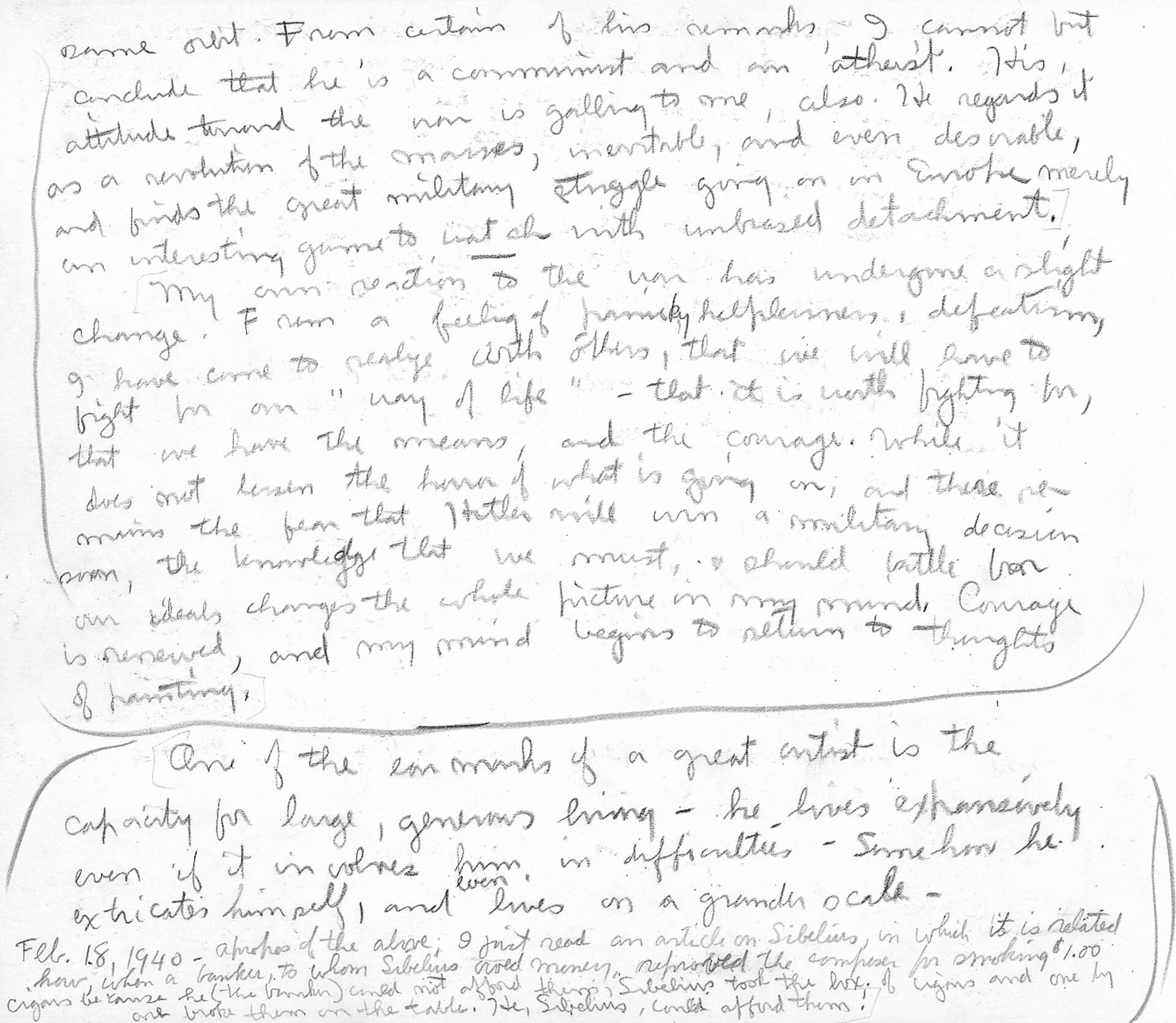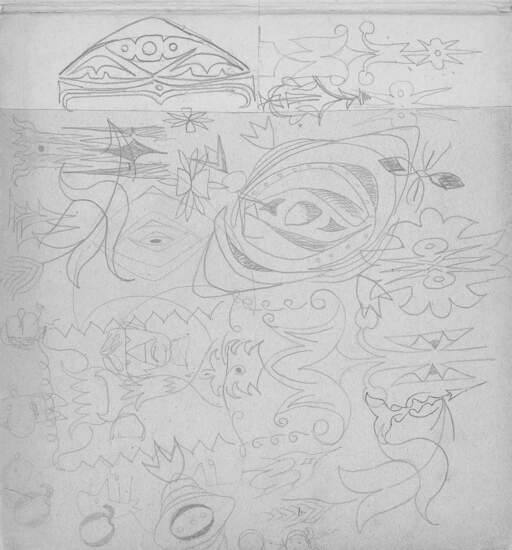Charles E. Burchfield (1893-1967)Untitled (Journal Pg 124)
June 2, 1940
graphite pencil on unlined paper
9 1/2 x 11 3/8 inches
Burchfield Penney Art Center courtesy of the Charles E. Burchfield Foundation, 2000
same orbit. From certain of his remarks, I cannot but conclude that he’s a communist and an ‘atheist’. His attitude toward the war is galling to me, also. He regards it as a revolution of the masses, inevitable, and even desirable, and finds the great military struggle going on in Europe merely an interesting game to watch with unbiased detachment. ; My own reaction to the war has undergone a slight change. From a feeling of panicky helplessness, defeatism, I have come to realize with others, that we will have to fight for our “way of life” – that it is worth fighting for, that we have the means, and the courage. While it does not lessen the horror of what is going on, and there remains the fear that Hitler will win a military decision soon, the knowledge that we must should battle for our ideals changes the whole picture in my mind. Courage is renewed, and my mind begins to return to thoughts of painting. ; One of the earmarks of a great artist is the capacity for large, generous living – he lives expansively even if it involves him in difficulties – somehow he extricates himself, and lives on a grander scale. February 18, 1940 – Apropos of the above, I just read an article on Sibelius, in which it is related how, when a banker, to whom Sibelius owed money, reproved the composer for smoking $1.00 cigars because he (the banker) could not afford them, Sibelius took the box of cigars and one by one broke them on the table. He, Sibelius, could afford them!


